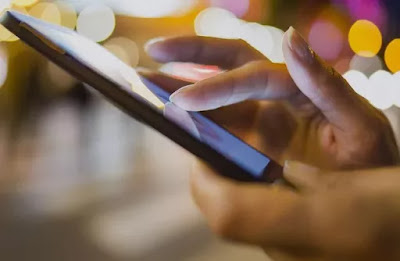Contrary to earlier report published last week that gave mobile phones a clean bill of health, a major trial backed by the United States (U.S.) Government has found a link between mobile phones and cancer.
The peer-reviewed study published in Daily Mail UK found rats exposed to the type of radio waves emitted by mobile phones were more likely to develop tumours in their brains and hearts.
The peer-reviewed study published in Daily Mail UK found rats exposed to the type of radio waves emitted by mobile phones were more likely to develop tumours in their brains and hearts.
British scientists last week stressed that extensive research on humans has found no evidence that mobile phones pose health risks – and said the new research is not strong enough to raise concerns.
But the authors of the study, led by the US National Toxicology Programme, said: “Given the widespread global usage of mobile communications among users of all ages, even a very small increase in the incidence of disease resulting from exposure to radiofrequency radiation could have broad implications for public health.”
The £17million trial involved exposing 2,500 rats to radio waves for nine hours a day, every day for two years. The researchers found ‘low incidences’ of tumours in rats exposed to the radiation.
Ron Melnick, a former National Toxicology Programme researcher who worked on early stages of the study before his retirement, told the Wall Street Journal: “Where people were saying there’s no risk, I think this ends that kind of statement.”
But Professor Kevin McConway, an expert in applied statistics at The Open University said: “It’s good that the U.S. National Toxicology Program is researching these issues.
“But these partial findings don’t cause me any real concern about health risks from mobile phone use.
Dr. Rodney Croft, director of the Australian Centre for Electromagnetic Bioeffects Research, said: “At present, and particularly given a range of uncertainties regarding its results, the report does not provide reason to move from the current scientific consensus that mobile phone-like exposure does not impact health.”
Dr. Rodney Croft, director of the Australian Centre for Electromagnetic Bioeffects Research, said: “At present, and particularly given a range of uncertainties regarding its results, the report does not provide reason to move from the current scientific consensus that mobile phone-like exposure does not impact health.”
Several studies had shown that mobile phones emit radiation energy in the form of radio waves and tissues closest to the phone can absorb this energy – but despite many studies investigating the issue, none have found evidence that this contributes to cancer risk.
The closest scientists have come to highlighting a link was when the International Agency for Research on Cancer said, in 2011, that the devices could ‘possibly’ cause cancer in humans.
But even then they said there was not enough evidence to come to a clear conclusion. Meanwhile, experts are now warning people who drive long distances that they need to consider protecting themselves from harmful ultraviolet (UV) radiation – when they are inside their cars.
While windscreens, made from special laminated glass, typically score well on sun safety tests, usually offering about SPF 50, other windows in cars do not need to meet the same safety standards and may score lower than SPF 20.
Dr. Jayne Weiss, Professor and Chair of Ophthalmology at LSU Health New Orleans School of Medicine, said: “Windshields provide excellent protection against UV light, which is associated with risk for skin cancer and cataracts, but a car’s side windows do not.
Previous studies in the US have demonstrated that left-sided skin cancer is more common in those with the disease who spend more time driving.
Experts advise that the use of UV-A-blocking films, some types of window tinting, sunblock and sunglasses can enhance the amount of UV-A blockage from side windows.

Comments
Post a Comment